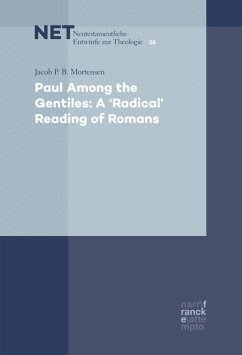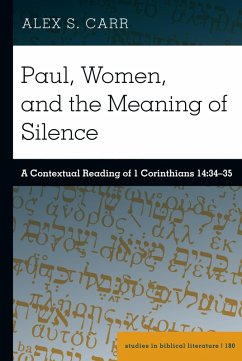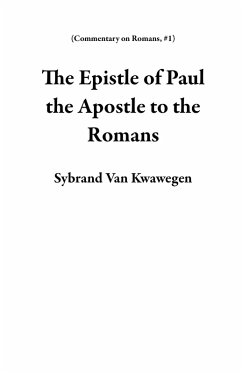
Paul Among the Gentiles: A "Radical" Reading of Romans (eBook, ePUB)
Versandkostenfrei!
Sofort per Download lieferbar
Statt: 78,00 €**
62,40 €
inkl. MwSt. und vom Verlag festgesetzt.
**Preis der gedruckten Ausgabe (Broschiertes Buch)
Alle Infos zum eBook verschenkenWeitere Ausgaben:

PAYBACK Punkte
0 °P sammeln!
This exciting new interpretation of Paul's Letter to the Romans approaches Paul's most famous letter from one of the newest scholarly positions within Pauline Studies: The Radical New Perspective on Paul (also known as Paul within Judaism). As a point of departure, the author takes Paul's self-designation in 11:13 as "apostle to the gentiles" as so determining for Paul's mission that the audience of the letter is perceived to be exclusively gentile. The study finds confirmation of this reading-strategy in the letter's construction of the interlocutor from chapter 2 onwards. Even in 2:17, where...
This exciting new interpretation of Paul's Letter to the Romans approaches Paul's most famous letter from one of the newest scholarly positions within Pauline Studies: The Radical New Perspective on Paul (also known as Paul within Judaism). As a point of departure, the author takes Paul's self-designation in 11:13 as "apostle to the gentiles" as so determining for Paul's mission that the audience of the letter is perceived to be exclusively gentile. The study finds confirmation of this reading-strategy in the letter's construction of the interlocutor from chapter 2 onwards. Even in 2:17, where Paul describes the interlocutor as someone who "calls himself a Jew," it requests to perceive this person as a gentile who presents himself as a Jew and not an ethnic Jew. If the interlocutor is perceived in this way throughout the letter, the dialogue between Paul and the interlocutor can be perceived as a continuous, unified and developing dialogue. In this way, this interpretation of Romans sketches out a position against a more disparate and fragmentary interpretation of Romans.
Dieser Download kann aus rechtlichen Gründen nur mit Rechnungsadresse in A, B, BG, CY, CZ, D, DK, EW, E, FIN, F, GR, H, IRL, I, LT, L, LR, M, NL, PL, P, R, S, SLO, SK ausgeliefert werden.













